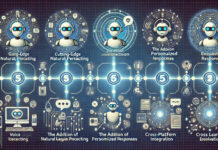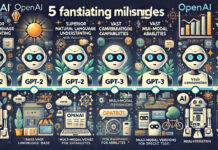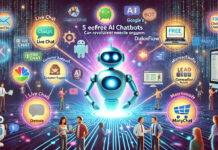Artificial Intelligence (AI) is revolutionizing education by providing personalized learning experiences and enhancing educational outcomes. From customized lesson plans to intelligent tutoring systems, AI is transforming how students learn and educators teach. This article explores the impact of AI in education, the benefits of personalized learning, and the future implications of this technology.
The Rise of AI in Education
AI’s integration into education has brought significant changes. Traditionally, education followed a one-size-fits-all approach, where all students received the same instruction regardless of their individual needs. However, AI is changing this paradigm by enabling personalized learning experiences tailored to each student’s unique strengths, weaknesses, and learning styles.
Personalized Learning
Personalized learning is at the forefront of AI’s impact on education. AI-powered tools and platforms analyze vast amounts of data on student performance and behavior to create customized learning paths. These paths adapt to the needs of each student, ensuring they receive the right level of challenge and support.
Adaptive Learning Systems
Adaptive learning systems use AI algorithms to adjust content difficulty based on a student’s performance. For example, if a student struggles with a particular concept, the system provides additional resources and practice opportunities. Conversely, if a student excels, the system introduces more challenging material. This dynamic approach helps students progress at their own pace, ensuring a deeper understanding of the subject matter.
Intelligent Tutoring Systems
Intelligent tutoring systems (ITS) are AI-driven platforms that provide personalized instruction and feedback. These systems mimic the one-on-one interaction between a student and a tutor. They use natural language processing (NLP) to understand student queries and provide explanations in real-time. ITS can also track student progress and adjust their teaching strategies accordingly, offering targeted support where needed.
Benefits of AI in Education
The integration of AI in education offers numerous benefits for both students and educators.
Enhanced Student Engagement
AI-powered tools make learning more interactive and engaging. By providing personalized content and real-time feedback, these tools keep students motivated and invested in their learning journey. Gamified learning platforms, for example, use AI to create adaptive challenges and rewards, making the learning process fun and engaging.
Improved Learning Outcomes
Personalized learning ensures that students receive instruction that matches their individual needs, leading to better understanding and retention of information. AI-driven systems can identify knowledge gaps and provide targeted interventions, helping students overcome obstacles and achieve their academic goals.
Efficient Use of Resources
AI can automate administrative tasks, allowing educators to focus more on teaching and less on paperwork. Tools such as automated grading systems and administrative software streamline routine tasks, freeing up time for educators to engage with students and develop innovative teaching strategies.
AI Beyond the Classroom
AI’s impact on education extends beyond traditional classroom settings. It also plays a crucial role in online and lifelong learning.
Online Learning Platforms
Online learning platforms leverage AI to offer personalized and flexible learning experiences. These platforms can recommend courses, track progress, and provide feedback, enabling learners to pursue education at their own pace and on their own terms. AI also enhances the quality of online education by providing real-time support and adaptive assessments.
Lifelong Learning and Professional Development
AI supports lifelong learning by offering personalized professional development opportunities. AI-driven platforms can recommend courses and resources based on an individual’s career goals and learning preferences. This continuous learning approach ensures that professionals stay updated with the latest skills and knowledge, enhancing their career prospects.
Challenges and Ethical Considerations
While AI offers significant advantages in education, it also presents challenges and ethical considerations.
Data Privacy and Security
The use of AI in education involves the collection and analysis of large amounts of student data. Ensuring the privacy and security of this data is crucial to protect students’ personal information. Educational institutions must implement robust data protection measures and comply with relevant regulations.
Algorithmic Bias
AI algorithms can exhibit bias if they are trained on biased data. In education, this bias can lead to unfair treatment of certain students. It is essential to ensure that AI systems are trained on diverse and representative datasets to minimize bias and promote equity.
Teacher-Student Relationship
While AI can provide valuable support, it is essential to maintain the human element in education. The relationship between teachers and students is crucial for emotional and social development. AI should complement, not replace, human interaction in the learning process.
Conclusion
AI is transforming education by offering personalized learning experiences and enhancing educational outcomes. From adaptive learning systems to intelligent tutoring platforms, AI provides tools that cater to individual needs and promote student success. However, it is essential to address the challenges and ethical considerations associated with AI to ensure its responsible and effective use. As AI technology continues to evolve, its impact on education will undoubtedly grow, shaping the future of learning and teaching.
For more insights into the future of AI in healthcare, continue exploring our series on AI’s latest advancements and news.



